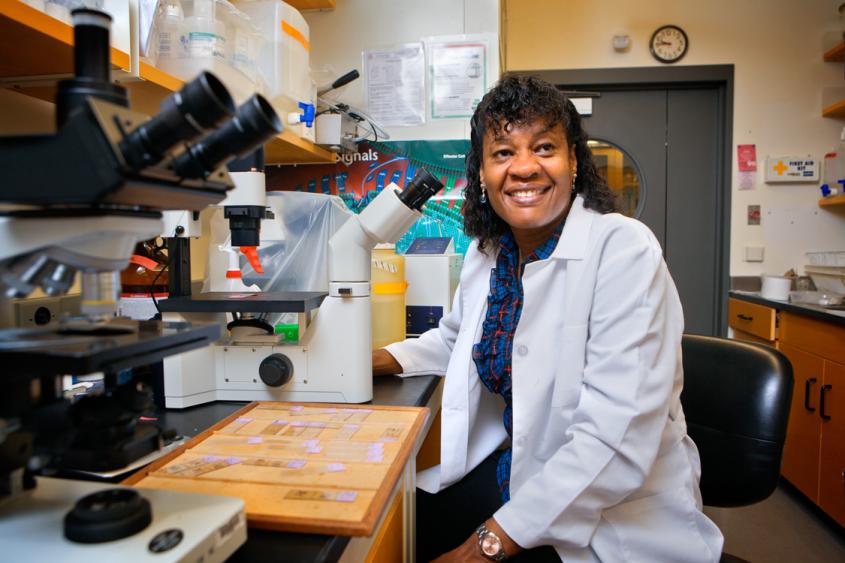Blood-brain barrier, protecting the brain
The blood-brain barrier (BBB) is a layer of specialized endothelial cells around the brain that protects it—letting in only what is needed and keeping out what could be harmful. It crucially maintains the right ionic balance within the brain and blocks substances that would disrupt essential neural functions. In many ways, it’s a barrier between life and death.
What happens, however, when there’s a cancer or a neurodegenerative disease like Alzheimer’s within the brain? The BBB is so good at its job that it prevents most therapeutic drugs from entering, too. This has fatal consequences. Beyond surgery, there are essentially no viable treatments for glioblastomas, for instance, the kind of brain tumor Senator John McCain has.
Margaret S. Bynoe, Microbiology and Immunology, studies the BBB, its structure and composition, and how to modulate it in order to safely deliver drugs to the brain. In 2011, she and her team discovered that an FDA-approved drug, currently used for cardiac imaging, can open the BBB—a literal, scientific breakthrough. “We can use this not just for the purposes of tumors,” Bynoe says. “Think of Alzheimer’s, Parkinson’s, even depression. Being able to get drugs into the brain, to treat a tumor or shift that chemical balance in mood disorders, can make a huge difference in a person’s life.”






